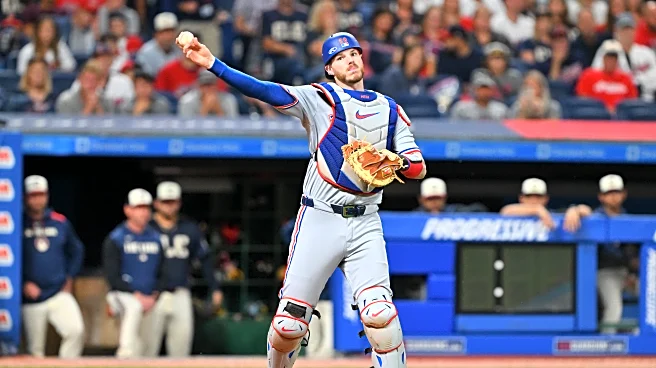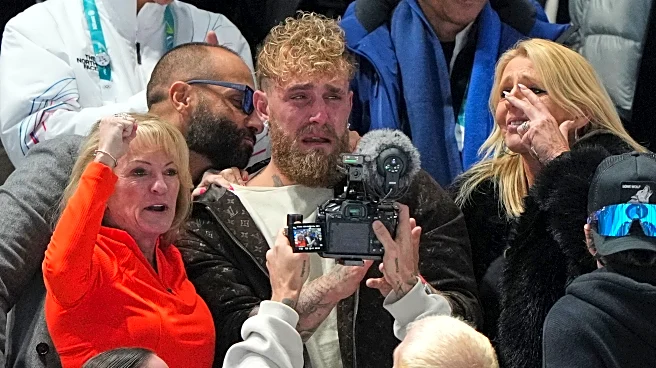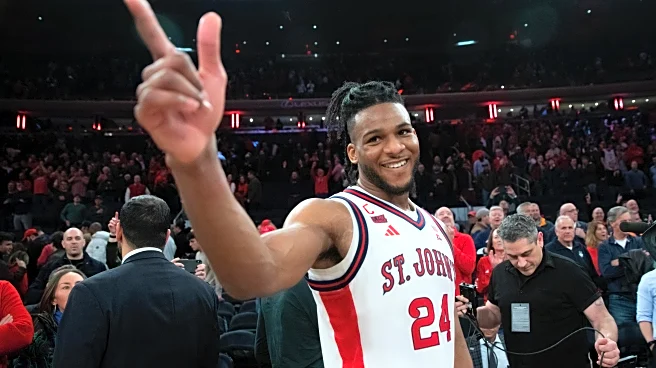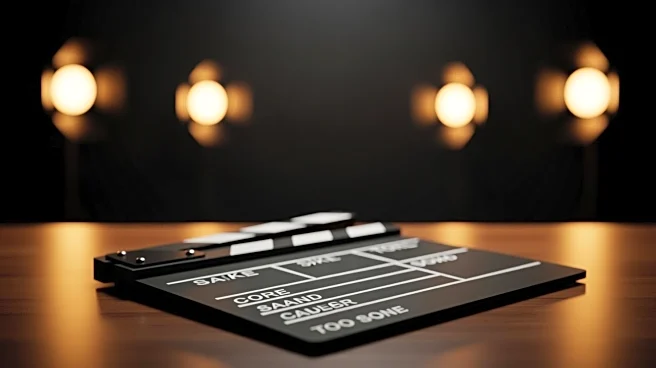
Brad Maynard was the athlete in Sheridan, IN.
In the fall, it was all football. In the winter, it was all basketball. In the spring, it was all baseball. Whatever athletic activity occurred, Maynard was waiting
on standby to do it. With such versatility, he did everything. When a coach needed someone to kick or someone to punt, Brad Maynard was always the answer.
A self-taught punter, Maynard’s parents suddenly realized there was something there during his high school days. So did Ball State, which heard about Maynard from a rival high school’s coach, and the Cardinals offered the Indiana native a walk-on spot.
Brad became a legend in Muncie. He earned consensus All-American honors twice at Ball State and claimed awards unheard of for punters, including MAC MVP and MAC Defensive Player of the Year. He subsequently warranted a third round NFL Draft selection and punted 15 years in the NFL, earning Second Team All-Pro with the Chicago Bears in 2004 and leading the league in punting yards on three occasions.
When Brad played his last game for the Cleveland Browns in 2011, that was supposed to mark the end of an accomplished punter’s story. Even biologists crafting Punnett squares did not expect the longtime NFL veteran to pass down his punting genes to the next generation.
Brad had three kids with his wife Karen who he met at Ball State — Conner, Cole, and Ava — and it wasn’t until Conner reached his latter years of high school that Brad had a sudden realization: that he was the founder of a family punting empire.
“I can’t say it never crossed my mind. I had my first son and when I had another son, it was like, ‘I could have two punters,’” Brad said. “My wife and I said that at one point, but they were just good athletes. They were busy with all their sports. I didn’t push it. I never brought it up. I was just going to let them do it when they were ready.”
Like Brad, Conner and Cole grew up as three-sport specialists, excelling in football, basketball, and baseball, but football occupied the true center of their hearts. There’s even photographic evidence of Conner carrying a football around the hospital during Cole’s birth in 2003.
After all, football was injected into their bloodstream from the time they were born. They attended all their father’s games in Chicago, recalling memories of running through the Soldier Field tunnel, throwing the ball around the field once the stadium cleared, and the thrill of acquiring a leg sleeve or a wristband from Adrian Peterson or any other player they encountered in the parking lot after the game.
The Maynard boys donned Brad’s No. 4 jersey, but the player they wanted to emulate wasn’t their dad. Conner was particularly mesmerized by the speed, slipperiness, and electrifying playmaking of Brad’s teammate, Hall of Fame punt returner Devin Hester.
“When my dad was playing for the Bears, a reporter asked him, ‘Do your kids want to punt when they get older?’ And he said, ‘No, they have no interest in it at all. They just want to score touchdowns and be like Devin Hester,’” Conner recalled. “That was my mindset. I wanted to score touchdowns and throw touchdowns. I never had an interest in punting.”
/cdn.vox-cdn.com/uploads/chorus_asset/file/26074183/DSCF1432.jpg) Courtesy of the Maynard Family
Courtesy of the Maynard FamilyBoth Conner and Cole were hyper-fixated on football futures, yet neither of those futures included the art of punting.
“My wife and I knew early on that they weren’t ready to start punting,” Brad said. “When Conner started playing flag football, they sent out an email to go to Dick’s Sporting Goods and get a water bottle, gloves, cleats, and all these things. My wife and Conner were getting ready to leave Dick’s, and he said, ‘Oh shoot, Mom, we forgot gloves.’ And she looked at him and said, ‘Conner, you don’t need gloves. Your dad doesn’t even wear gloves and he plays in the NFL.’ Conner looks at her, rolls his eyes and says, ‘Dad’s just a punter.’”
Brad never pressured his sons into following in his punter footsteps and instead encouraged their passion for the game.
“We always played backyard football, and there’s no punter in backyard football,” Cole said. “There’s always a quarterback and wide receiver, so we fell in love with those skill positions.”
Being the oldest, Conner was the Maynard to step foot on a high school field, eager to showcase the culmination of 14 years of catching passes and scoring touchdowns in backyard football. But just moments into his freshman year, his entire future changed on one play. After catching a screen pass, he absorbed a forceful tackle and immediately felt his ankle snap. X-rays showed he broke his tibia and fibula, jeopardizing a football career right as it was ready to launch. But Conner wasn’t going to give up his No. 1 passion. So while recovering from the injury, he found other avenues to contribute to the game and learned how to long snap. That overlooked skill was his ticket to varsity as an underclassman.
Conner spent his junior year as the varsity long snapper, and although recruited by high-profile FBS schools for the position, he struggled with an honest realization. He was 6’3”, but he wasn’t willing to bulk up to 245 pounds, thus remaining severely undersized for the role.
Still on a relentless mission to play college football, Conner finally acknowledged his dad’s punting roots he often dismissed in his youth. Brad still recalls the moment of surprise when Conner came up to him, uttering the words, ‘Dad, I think I want to punt.’”
“Right before my senior year of high school, I decided to go out one day with my dad,” Conner said. “He never tried to push punting on us which I think was pretty cool, but deep down he always wanted us to. But he gave us that choice to decide. Once we both were old enough and wanted to play college sports, we decided to try punting and never looked back.”
At the same moment Conner traded in his receiver gloves, Cole also joined the family punting business.
“Me and my brother wanted to play college football,” Cole said. “Our dad was good at punting and played in the NFL for 15 years, so we thought, why not try it and see where it takes us?”
/cdn.vox-cdn.com/uploads/chorus_asset/file/26074185/FullSizeRender.jpg) Courtesy of the Maynard Family
Courtesy of the Maynard FamilyBrad always envisioned this moment. He figured the day would arrive sooner, as did his wife. But the moment the former All-American and All-Pro rolled up to the fields with Conner and Cole, he realized he was more of a doer and less of a teacher — especially when he considered the different body types and natural tendencies of his sons.
“It didn’t take me long to realize that I didn’t know how to teach it,” Brad said. “My style was a little different how I punted. The first thing I did was rotated my wrist and rolled the ball out. Now they’re teaching them to already put the ball there, and it’s less movement which makes sense. But it’s how I taught myself how to punt. I didn’t go to any coaches, went to a couple camps later on, but that’s how I taught myself how to do it and it worked for me.”
Despite stark contrasts in form, Brad’s professional background still worked wonders on the two aspiring collegiate punters. In terms of learning punting technique, Cole claims his father’s greatest contribution was teaching flexibility. Brad preached good stretching habits and showed his sons how to structure a perfect punting practice.
A typical punting session consisted of 15 to 20 minutes of stretching, drops, light swing work, and then no-step and one-step punts as the warm-up period. After that, game-like scenarios were simulated with punts stemming from both the left and right hashes. The Maynard brothers usually had the goal of turning over (perfect end-to-end rotation) 30 punts in these scenarios.
And like most activities brothers simultaneously partake in, it turned into a competition.
“We’re brothers and have one of the greatest bonds you can ever have, but punting brought us so much closer,” Conner said. “There were days when I didn’t want to go to the field and punt, and he was like, ‘Dude, I’m going,’ so then me being the big brother, I’m not gonna let my little brother punt and get better. I’m gonna get better with him. It’s really cool having your best friend and both of you are doing the same thing. It’s really cool what we built. I don’t think even he realizes it yet. I couldn’t have asked for any other way. It’s your best friend. You both go out there trying to make each other better every time you punt.”
With all the focus on perfecting the craft of punting and outdoing one another, they were quietly building each other into Division I athletes.
“Every day, I’m not only competing with myself. I’d be competing with him too, and I’m sure he was competing with me every time,” Conner said. “We didn’t even have to say anything to each other like, ‘I’m gonna go out and kick your ass today,’ but we both knew that’s what we were trying to do. Having that support and having him there to push me made both of us so much better. I don’t think I would have gotten this far if it weren’t for him. When you’re punting, you have days — it could even be weeks or months — when you’re just in a little drought and you can’t hit great balls. He’d always be there for me when that was happening. It was great to have someone out there who cared about me and my punting and truly wants to see me succeed, and vice versa.”
By the natural progression of time, Conner was the first of the two to pursue the college football dream. He entered his senior year at Hough High School with no varsity punting experience, but Hough’s status as a powerhouse in Charlotte made the campus a fertile ground for college recruiters. Several weeks into Conner’s senior year, Miami (OH) pulled up to scout one of his closest friends, wide receiver Austin Robinson. The Miami rep asked Brad, who worked as Hough’s special teams coach, where Conner was attending college. Conner didn’t have an offer yet, and the RedHawks’ interest exponentially rose as he earned his first snaps as varsity punter. One week later, Miami special teams coach Joe Palcic was in the Maynard kitchen pitching Conner to walk-on in Oxford, OH.
The first-year starting punter posted the offer on Twitter, and soon other colleges began to flood in. Among them were Brad’s alma mater Ball State, Miami (FL), and Penn State. But Conner chose Miami due to the RedHawks’ genuine interest and initiative shown throughout the recruiting process.
/cdn.vox-cdn.com/uploads/chorus_asset/file/26074186/usa_today_24266765.jpg) James Guillory-Imagn Images
James Guillory-Imagn ImagesAfter three seasons at Miami, Conner transferred to Appalachian State — where he grew up attending football camps — to move closer to home. Cole recently joined Conner in the Division I ranks by walking on at North Carolina and their sister Ava later committed to NC State as an accounting major — centralizing the entire Maynard family in the Tar Heel State.
Conner and Cole, separated by two years in age, didn’t share the field in high school due to varsity and junior varsity splits. But due to Conner’s timely transfer, they lined up on opposite sidelines on two occasions in college, with Conner repping Appalachian State and Cole donning North Carolina colors. Both Maynards saw the field as holders in matchups that turned out to be instant classics.
“That was one of the greatest experiences I’ve ever had. I felt emotions I hadn’t felt before. One, I was playing my brother. Two, the games were so good. Just being able to share the field with him and having our whole family be able to come, there’s nothing greater than what I felt both of those games.”
In 2022, North Carolina edged App State in Boone 63-61 in a season-opener which featured 62 total points in the fourth quarter — including three touchdowns in the final 31 seconds. In 2023 in Chapel Hill, the Tar Heels escaped 40-34 in double overtime, giving Cole’s team the upper-hand in both meetings.
“I gave him a little crap after the game which was fun — giving the big brother crap,” Cole said. “But they were two really exciting games that could have gone either way, but both went our way.”
2024 was a transformative year for the brothers, because for the first time, both elevated to starting punter status. Conner won the punting battle in his third year at Appalachian State, while Cole transferred from North Carolina to Western Kentucky to earn his time in the limelight.
“When I entered the portal, my main focus was playing. That’s the only thing that mattered to me,” Cole said. “Coach (Andy) LaRussa was the first coach to reach out to me, and he told me they had an opening and they didn’t have a punter. There were gonna be two guys coming in and competing, so I took it right away.”
Cole successfully won that punting competition at WKU, mastering direction, getting the punt off in less than 2.0 seconds after the catch, and a quality hang time-distance relationship as attributes needed to emerge as the starter. Conner and Cole were finally punting for Division I FBS programs.
“It was finally the year where we saw all of our hard work pay off, and it really did turn into a competition each week,” Conner said. “We’d be checking our averages every single week. He’d be talking crap to me. I’d be talking crap if I got him one week. It was super cool. As a big brother, you hate to see your little brother doing better than you, but at the same time, it’s also the greatest thing ever.”
/cdn.vox-cdn.com/uploads/chorus_asset/file/26074188/_SP_1330.jpg) Savannah Philpot/WKU Athletics
Savannah Philpot/WKU AthleticsConner’s eligibility exhausted after the 2024 campaign. He spent the offseason testing professional opportunities as a punter, speaking to several NFL teams after honing his skills with kicking coach Dan Orner in Charlotte. Factoring in the sheer scarcity of punting jobs in the NFL, CFL, and UFL, Conner faced the reality that it’s an exhaustively competitive field.
“I feel bad for Conner that he only got one year to play,” Brad said. “He’d tell you he’d feel so much more confident now if he had a year left that he thinks he’d have a great year, and that’s what Cole is going through. His expectations are high for himself right now because he has the experience and knows what to expect.”
As for now, the Maynard punting dynasty now lingers through Cole’s toe. Cole was first introduced to a starting punting gig in a hostile environment when WKU opened its 2024 campaign at Alabama. But even in the midst of a 63-0 shellacking, the experience and the difficulty of the matchup proved vital for Cole’s confidence. He punted nine times for 403 yards in a raucous Bryant-Denny Stadium.
“For a first start, I was a little nervous,” Cole said. “But going from Alabama where there’s 60,000+ people there, it gets a lot easier after that. Nine opportunities in front of that crowd, that really made me comfortable going into the rest of the season.”
With a full season of FBS punting experience under his belt, highlighted by a dominant performance vs. Toledo, Cole aims to test the professional waters next offseason and become the third Maynard in the NFL. Yes, the third. Brad wasn’t even first. His wife Karen spent two seasons as an Indianapolis Colts cheerleader in 1995 and 1996 before Brad joined the professional ranks in 1997 with the New York Giants.
Before NFL enters the picture, Cole vies to become the first Maynard to claim the Ray Guy Award — which premiered four years after Brad’s legendary 1996 season and is given to the top punter in the country. Cole also aims to sustain WKU’s recent track record of success by routinely flipping the field and forcing opponents to dig out of unfavorable field position.
“100 percent the NFL is something that I’m eyeing,” Cole said. “I also understand what it takes to get there and the amount of work that you have to put in. We’ll see where this year takes us. I’m hoping to have a good year and get an invite somewhere, but I’m going with the flow.”
And who is more qualified to comment on Cole’s punting potential in the NFL than the founder of the Maynard punting dynasty himself? After navigating the pathway to the NFL and spending 15 years in it, Brad can envision the bloodline continuing at football’s highest level.
“I certainly could see it,” Brad said on Cole’s NFL dreams. “I’d certainly love to see him get into a camp — that’s all it takes. If you can get in and get looked at, maybe you have an opportunity. He needs to have a good year. He doesn’t need to press and do too much. Just go out and kick the ball, understand the situation and put together some good games.”
Before Cole aims to return to the NFL setting where he spent his childhood Sundays, there’s one other goal for his final collegiate season. To date, the only Maynard to successfully execute a fake field goal is Brad. As a holder with the Bears, he threw two touchdown passes during his career — a 12-yard shovel to Dustin Lyman and a 27-yard deep ball to Brian Urlacher. Prior to joining the Maynard punting tree, Cole spent his entire youth proving he could be a star skill position player, and maybe those skills of yesteryear can pay their dividends.
“I can still throw it, I can run it, I’ll do whatever,” Cole said. “It’s just something you want to have in your back pocket, and hopefully, they call it.”
More from underdogdynasty.com:
- Final Score: Georgia Southern Eagles Upset Troy Trojans 28-24
- Georgia Southern Eagles vs. Troy Trojans Preview
- Houston Prepares to Replace a Dazzling Young Coach (Again)
- AAC Championship Game Preview: Navy vs Temple
- C-USA Championship Preview
- Conference USA Bowl Projections Roundup: C-USA filled its bowl slots. Now who’s going where?
- Arkansas State Red Wolves vs Texas St Bobcats Preview













